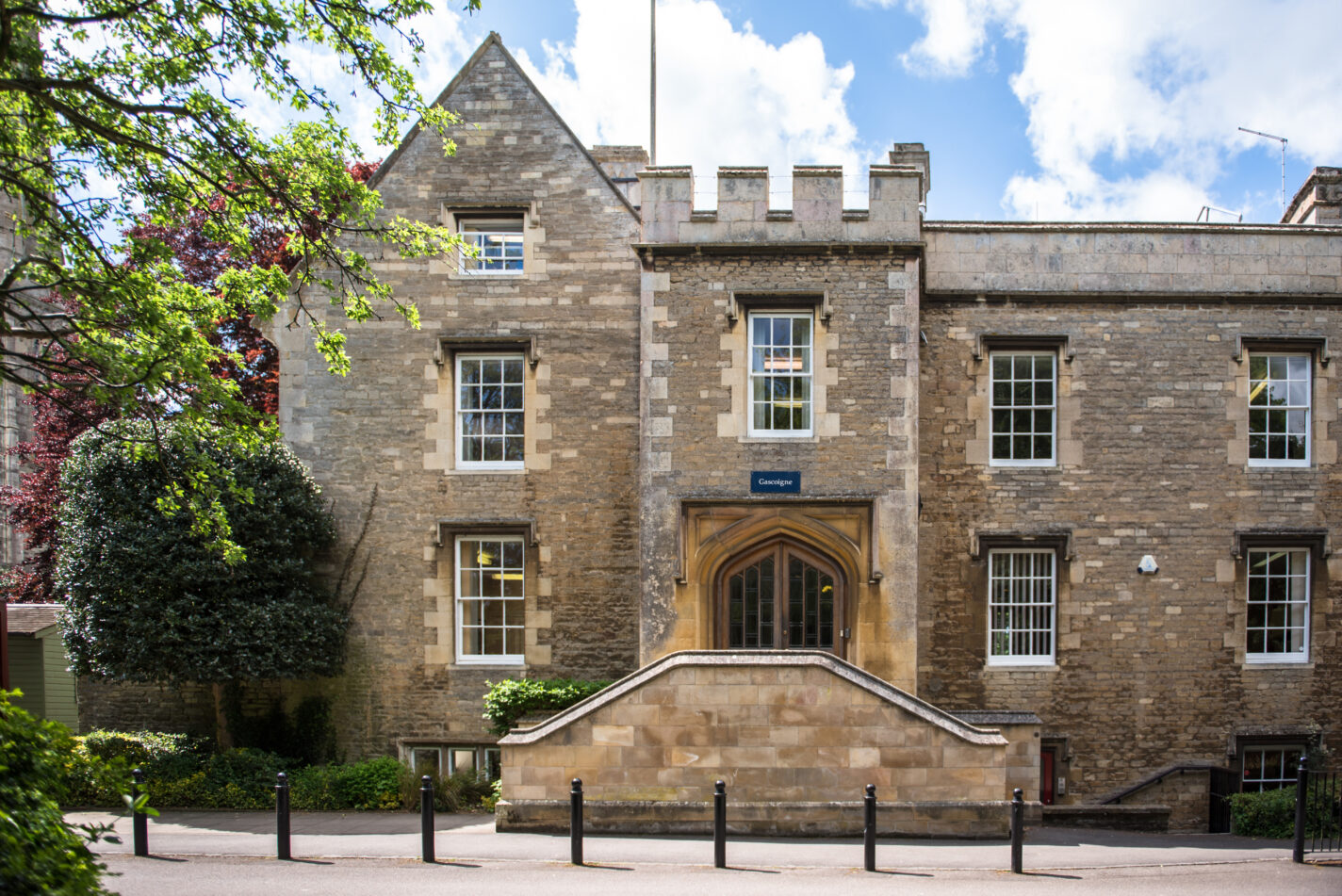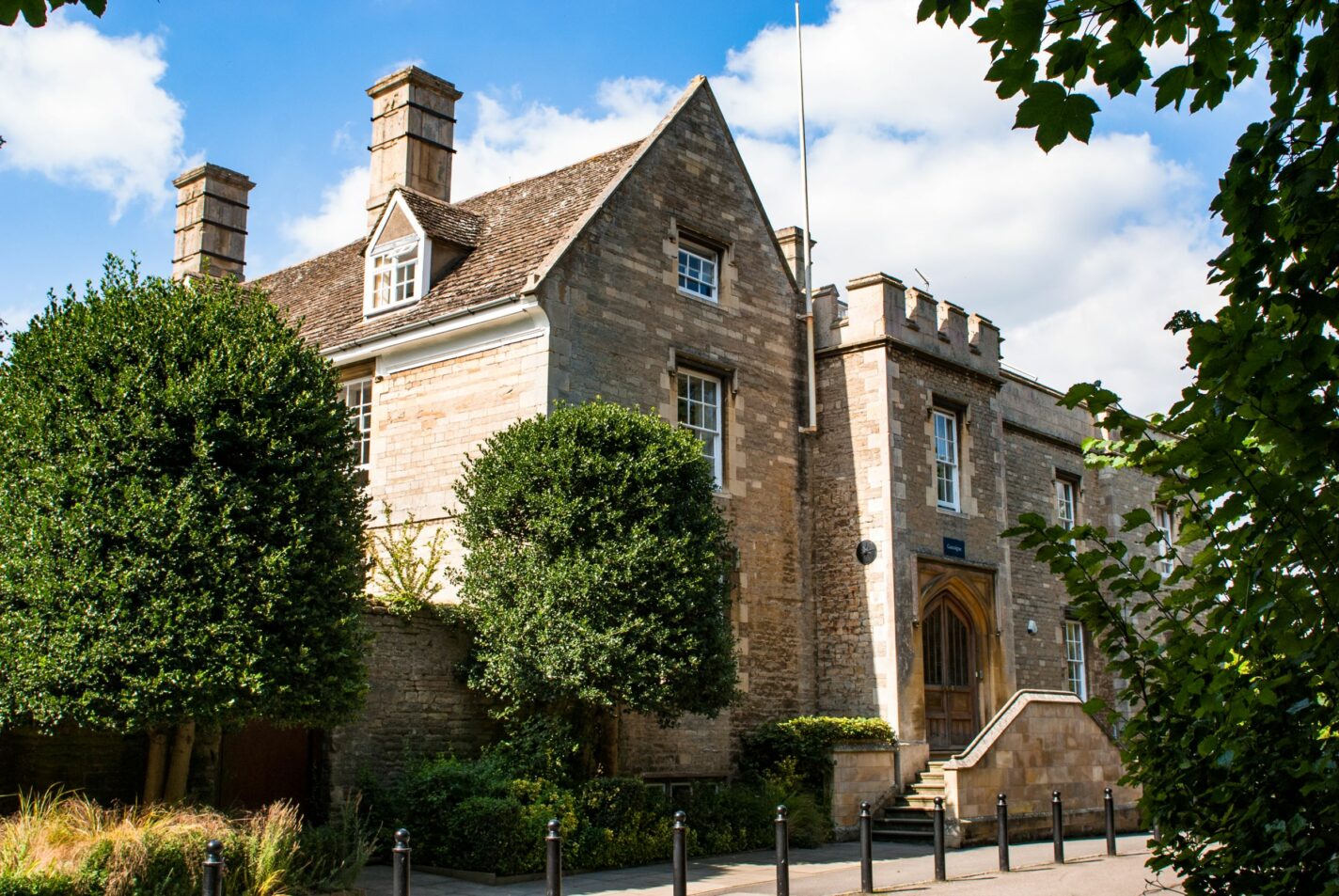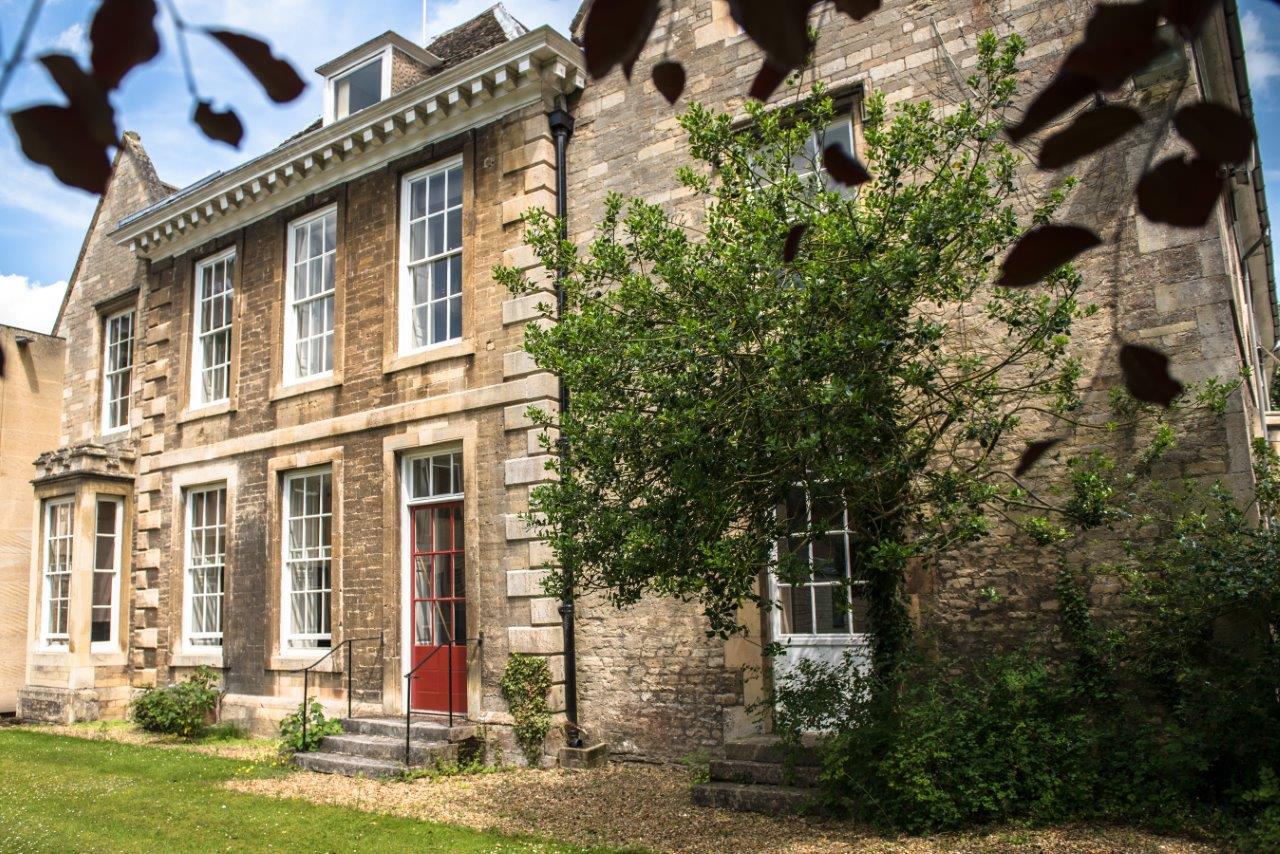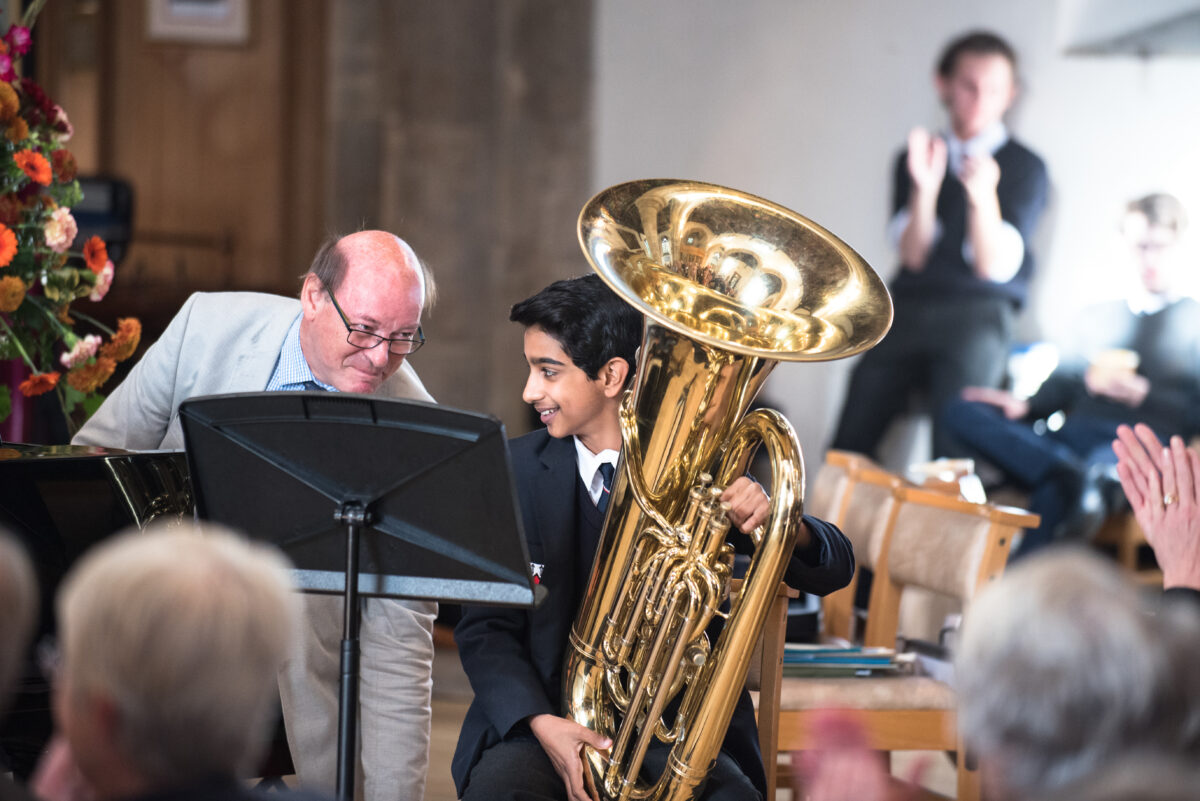


Music offers all children a fundamental sense of achievement and joy. At Oundle, pupils experience the spark of musical creativity and gain skills that will serve them in any career they go on to have.
All pupils in the First to Third Forms take Music, during which they are taught basic theory, composition, analysis, performance, listening and appraising skills. The GCSE course allows for considerable development of practical musicianship skills, such as performance and composition, while Music at A level provides an opportunity to study European cultural heritage as well as other traditions from across the world.
Subjects taught here
Music is taught in classes to all First and Second Form (Years 7 and 8). Pupils in the Third Form choose to study the subject as one of three practical choices out of six. GCSE and A Level Music is delivered to good numbers, along with a Sixth Form Diploma course option. The Music School has good facilities for technology in music and these play an important part in studio work, the music tech academic options and compositional work for GCSE/A level. There are popular, weekly classes in theory and aural training.
A number of pupils have been selected for the National Youth Orchestra, the National Children’s Wind Orchestra and the National Children’s Orchestra. Many pupils at Oundle achieve diplomas before leaving and go on to music conservatoires or to instrumental or choral scholarships at university.

Music lessons taught each week
A unique formal partnership with the Royal College of Music has further raised the profile of Music with RCM professors delivering workshops across different specialisms at the school and an annual concert held at the at the RCM in the Amaryllis Fleming Concert Hall.
Teaching and practice rooms as well as a separate recital room, rehearsal room, technology studio and library.
Committed and enthusiastic Music teachers
Music events each year
The Gascoigne Building houses award-winning radio station, OSCAR Radio, with facilities for musicians to record and press their own audio CDs
All pupils are encouraged to play in instrumental groups and to sing in choirs as soon as they reach a reasonable standard. Instrumental Ensembles are tiered in terms of ability. At present, the largest ensembles include Symphony Orchestra, Chamber Orchestra, Chapel Choir, Schola Cantorum, Chamber Choir, Junior Choir, Wind Orchestra, Concert Band, two Jazz Orchestras, CCF Marching Band, the Pipers, Drum Corps. Many smaller ensembles flourish in addition to these through all instrumental families, such as rock bands, ukulele group, via percussion, wind, and brass ensembles, through to string quartets and a host of chamber music making.
All groups are given frequent opportunities to perform in concerts, services or social functions in and out of School throughout the year. There are competitions during the year for solo instrumental and ensemble performance, solo singing and House part and unison singing. The department is involved with many productions in the Stahl Theatre, ranging from incidental music for plays, to full length musicals. Alexander Technique is important and the department was instrumental in the ground breaking initiative Violinists in Balance that was developed alongside the Conservatoire in Utrecht. The School has a partnership with the Royal College of Music, giving Oundle musicians unique access to the College’s professors and facilities, including an annual performance at the Amaryllis Fleming Concert Hall.
The department places great value in Music Scholars and gives them every opportunity to hone their skills and excel in their art. There are currently around one hundred Music Scholars at Oundle whose musical leadership ensures a full programme of exceptional performances in ensembles, orchestras, bands and choirs.
Quentin Thomas, Director of MusicThe sheer scale of Oundle’s music operation offers extraordinary diversity and scope beyond expectation. ‘Music for all’ is a fundamental principle at Oundle School and our Music Scholars are behind that principle every step of the way, leading from the front
40 teaching and practice rooms
OSCAR Radio
Recital room
Rehearsal room
Technology studio
Library
Built in the 17th century as the Rectory, part of the Rectory Manor, the Gascoigne Building was owned by the Smiths brewing family for much of the 19th and early 20th centuries. In the 1970s the building was enlarged with an office block by Anglian Water Authority.
The School purchased the property from them in the 1990s. The Gascoigne was officially opened in March 1996 and named after Mr C. Gascoigne, former chair of the Governors and a member of the Worshipful Company of Grocers.

